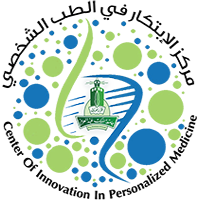
Prof. Adeel Gilzar Chaudhary
Director of the Center
chaudhary@kau.edu.sa
(966) 12-695-2000, Ext: 72140
Jeddah, Saudi Arabia
Scientific Profile:
After completing my PhD in 1999 from the University of Sheffield in Genotypingof the TNF and IL-1 gene cluster; development of high throughput technology,application in human disease and functional studies, I was appointed as anassistant professor at the department of Medical Laboratory Technology (MLT),Faculty of Applied Medical Sciences (FAMS), King Abdulaziz University (KAU).Apart from participating academically at the undergraduate level, I becamemember of a strategic group of young scientists that embarked on arevolutionary course at KAU. I was, therefore, involved in establishingstate-of-the art core diagnostic facility for Cytogenetics and MolecularGenetics in 2003 named Diagnostic Genomic Medicine Unit (DGMU).
Since then Ifocused on establishing training programs in molecular genetics for highcaliber Saudi graduates from various health faculties at KAU. Basic researchplatforms were also launched in parallel with expanding diagnostic services whereI was involved in implying technology, outlining SOPs, various safety, quality controland assurance programs that finally lead to the CAP accreditation of DGMU in2011. My main stream research was focused on investigating the underlyinggenetic causes of neurodegenerative diseases with particular emphasis onDuchenne Muscular Dystrophy and Spinal Muscular Atrophy. I have so farsuccessfully supervised research projects for more than 50 undergraduate MLT students,eight MSc students and published over twenty papers.
Now the program provides umbrella to severalmultidisciplinary teams composed of Saudis and foreigner scientists, clinicians& international highly cited researchers working on neurodegenerativedisorders, intellectual disabilities of all forms, autism and various types of Epilepsies.The technology implied in this program includes array CGH, real time PCR,methylation analysis, western blots, electron microscopy, automated and nextgeneration sequencing. NGRP has not only managed to publish well but it hasgenerated ~ SR6 million for CEGMR through King Abdullah City for Science andTechnology (KACST) approved large and strategic grants. My main tasks includetechnical management of CEGMR, streamlining research activities and aggressivelypursuing publications in well cited journals. Facilitate establishment ofcutting-edge training programs and also channelize national and internationalnetworking. After being promoted to associate professor in 2010, I was alsoappointed as chairman of diagnostic radiology department at FAMS. During my twoyear tenure I gained extensive experience in human resource and academicadministration, however, along with my initial position as vice director fortechnical affairs at CEGMR, I was appointed at Head of Research &Scientific Affairs at the King Fahd Medical Research Center (KFMRC) that hostsCEGMR and DGMU.
Recent Publications:
Noriko Homma, Ruyun Zhou, Muhammad Imran Naseer, Adeel G. Chaudhary, Mohammed H.Al-Qahtani, and Nobutaka Hirokawa. KIF2A regulates the development of dentate granule cells and postnatal hippocampal wiring.. eLife Journal 2018 Jan 9;7. pii: e30935. (IF. 7.8).
Muhammad Imran Naseer*, Mohammad Khalid Alwasiyah1, Angham Abdulrahman Abdulkareem, Mahmood Rasool, Rayan Abdullah Bajammal, Adeel G. Chaudhary, Mohammed M. Jan, Mohammad H. Al-Qahtani. A novel homozygous mutation in SZT2 gene in Saudi family with developmental delay and epilepsy. (Genes and Genomics). (IF. 0.53).
Sajjad Karim, Hasan Salleh Jamal, Muhammad Imran Naseer, Rola Turki, Adeel Gulzar Chaudhary, Mamdooh Gari, Adel Mohammed Abuzenadah, Mohammed Husseain Al-Qahtani. Genomic answers for recurrent spontaneous abortion in Saudi Arabia: an array comparative genomic hybridization approach. (Reprod Biol. 2017 Jun;17(2):133-143). (IF 1.51).
Muhammad Imran Naseer*, Angham Abdulrahman Abdulkareem, Mahmood Rasool, Adeel G. Chaudhary, Mohammed M. Jan, Mohammad H. Al-Qahtani. A novel homozygous frameshift variant in the MCPH1 gene causes primary microcephaly in a consanguineous Saudi family. (Genes and Genomics 2017 Volume 39, Issue 12, pp 1317–1323) (IF 0.51).
Muhammad Imran Naseer*, Mahmood Rasool, Sameera Sogaty, Rukhaa Adeel Chaudhary, Haifa Mansour Mansour, Adeel G. Chaudhary, Adel M. Abuzenadah, Mohammad H. Al-Qahtani. A novel WDR62 mutation causes primary microcephaly in a consanguineous Saudi family. (Ann Saudi Med. 2017 Mar-Apr;37(2):148-153) (IF 0.55).
Muhammad Imran Naseer *, Adeel G. Chaudhary, Sameera Sogaty, Mahmood Rasool, Sajjad Karim, Hans-Juergen Schulten, Fehmida Bibi, Peter Natesan Pushparaj, Hussein A. Algahtani, Mohammad H. Al-Qahtani. Chromosomal micro-aberration in a Saudi family with Juvenile myoclonic epilepsy. (CNS Neurol Disord Drug Targets. 2017;16(9):1010-1017) (IF 2.50).
Naseer MI, Sogaty S, Rasool M, Chaudhary AG, Abutalib YA, Walker S, Marshall CR, Merico D, Carter MT, Scherer SW, Al-Qahtani MH, Zarrei M. Microcephaly-capillary malformation syndrome: Brothers with a homozygous STAMBP mutation, uncovered by exome sequencing. Am J Med Genet A. 2016 Aug 17. doi: 10.1002/ajmg.a.37845. (IF 2.25).
|
Last Update
10/14/2019 11:29:34 AM
|
|